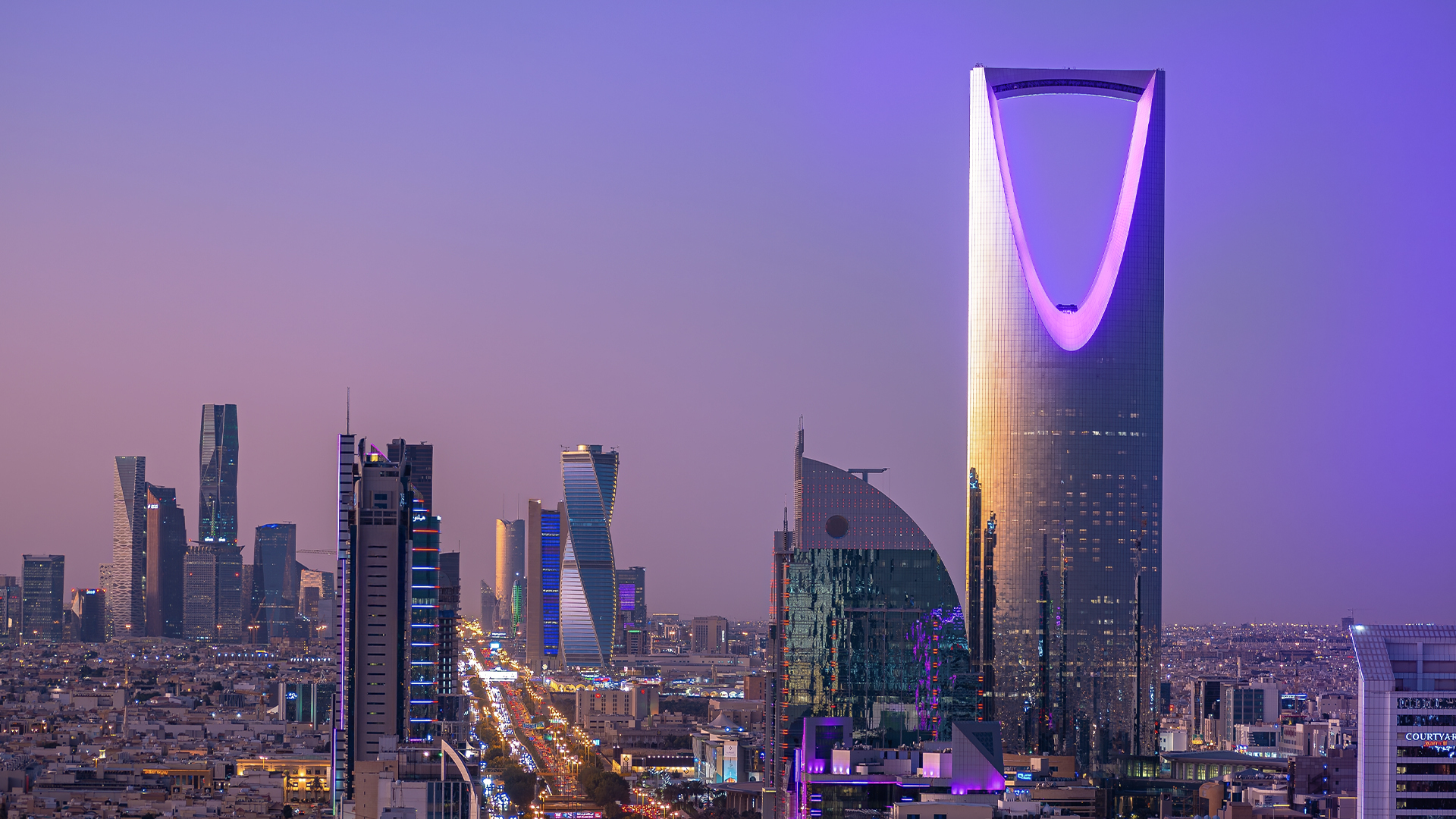The Impact of Global Events on Local Markets: A Saudi Perspective
Global events can occur practically anywhere on Earth, and they have global repercussions. Events occur, and their effects are global in scope, impacting the business economy in every nation on the planet. These world events can be technical advancements, natural disasters, geopolitical conflicts, economic crises, or any other issue that has arisen in any of the numerous locations where nations exist, regardless of their size, location, or culture.
Global events have a significant role for Saudi Arabia, one of the biggest economies in the area, with a globally linked economy. Global dynamics have a direct impact on the Kingdom because of its reliance on the oil industry and continuous attempts to diversify the economy under an aspirational national vision. Changes in international legislation, governance, global demand, and oil prices are all strongly related to how the economy functions. Understanding world events, including all forms of geopolitical or economic threats and their possible repercussions, is essential.
Examples of Global Events
Economic Crises
An example is the 2008 global financial crisis, which started in the U.S. but quickly spread to large and small economies, causing significant economic disruption and a global recession.
Geopolitical Conflicts
For example, the war in Ukraine impacted global energy markets by driving oil and gas prices higher, which contributed to volatility in markets. This had a local impact on local economies, such as Saudi Arabia.
Natural Disasters
Global supply chains and the supply chains to and within medium and large-sized firms can be disrupted due to events, such as hurricanes, floods,or earthquakes, and have an impact on trade and production in areas far removed from or outside the disaster area, thus revealing how dependent the modern global economy is.
Technological Advancements
Artificial intelligence invention and the digital transformation have redefined industries. While they originally open up new growth opportunities, they also present challenges that governments, businesses, and investors must adapt to quickly.
Why Should Local Investors in Saudi Arabia Pay Attention?
Saudi Arabia’s strategic position in global energy markets makes it especially sensitive to global shifts. Changes in the global economic or political landscape are often felt quickly in the local market. Some areas where the effects are most visible include:
- Employment: A global economic slowdown can reduce job opportunities within the Kingdom.
- Prices: Global disruptions in commodity or energy prices can influence local living costs.
- Investment Options: International events may create or reduce investment opportunities.
- Currency Value: External factors can affect the exchange rate of the Saudi Riyal against other currencies.
For local investors, closely monitoring global events is essential. Being informed can help manage risks and respond proactively to changes that affect the Saudi financial market.
How Do Global Events Affect Local Markets?
In an interconnected economy throughout the world, no market exists in a vacuum. Every market is subject to direct or indirect impacts caused by every major event. This connectedness is especially obvious for Saudi Arabia, which has a very integrated export and import economy. Here are some of the primary ways this connectedness manifests:
- Supply Chains: Natural disasters or political unrest in key regions can disrupt shipping routes, causing delays or shortages in raw materials and goods, which may lead to rising costs.
- Commodity Prices: Global markets respond quickly to political and economic developments. A disruption in a key oil-producing region, for example, often affects oil prices and thus Saudi revenue.
- Investor Confidence: Investors react to major global developments, wars, banking crises, or unexpected political changes by either pulling funds or accelerating investment, impacting local market stability.
- Global Monetary Policy: Interest rate changes by major central banks like the U.S. Federal Reserve or the European Central Bank can affect capital flows into emerging markets like Saudi Arabia and influence currency valuations.
The Relationship Between the Saudi Economy and Global Markets
The Saudi economy is global. The Kingdom is a large oil exporter and one of the largest importers of goods and services. Because of this connectivity, the local economy is impacted by global political, economic, and environmental changes.
Saudi Arabia’s Strategic Role
As a key member of OPEC and a major player in global energy, Saudi Arabia influences and is influenced by oil market dynamics. Any disruption in global supply or demand directly affects national revenue.
Foreign Investments
Entities like the Public Investment Fund manage diversified global portfolios. Fluctuations in international markets affect these investments and, by extension, the domestic economy.
Investment Climate
Although foreign investment flows mainly to contribute to political stability and continuous reforms according to Vision 2030, external factors, such as global movements, could affect investor behavior and, consequently, inflows, e.g., a change in interest rates or geopolitical tensions.
The Impact of Oil Market Fluctuations on the Saudi Economy
Oil as a Primary Revenue Source
More than half of Saudi government revenue comes from oil exports, making the national budget sensitive to oil price changes.
Factors Affecting Oil Prices:
- Global Production Levels: Decisions within OPEC about output quotas can significantly influence prices.
- Global Demand: Growth or recession in major economies shifts demand.
- Geopolitical Conflicts: Tensions in oil-producing areas often cause price volatility.
H2: The Impact of Global Economic Crises on Saudi Markets
Global Recessions
A downturn in large economies like the U.S. or China reduces oil demand, impacting Saudi export revenue and potentially leading to tighter budgets or delayed projects.
Financial Crises
Bank failures or stock market crashes lower global liquidity, making investors more risk-averse and potentially reducing foreign investment in Saudi Arabia.
Historical Examples:
- 2008 Financial Crisis: Caused a drop in Saudi market indices and oil prices.
- COVID-19 Pandemic: Severely affected global energy demand, prompting the Kingdom to implement austerity measures.
Practical Examples of Global Impact
Ukraine War
- Increased global oil prices benefited Saudi revenues.
- Food prices rose due to disrupted supply chains, raising domestic inflation.
Global Inflation
- Rising prices in major markets led to higher import costs.
- This pressured local purchasing power and drove adjustments in monetary policy.
U.S. Federal Reserve Decisions
- U.S. interest rate hikes often prompt similar moves in Saudi Arabia due to the Riyal’s peg to the dollar.
- This raises borrowing costs and may slow investment and local growth.
The Impact of Global Political and Economic Crises
Geopolitical Tensions
Conflicts and wars interfere with international trade and trigger the price of transport and insurance, increasing the prices of imports.
Trade Wars
Major economies such as the U.S. and China may share tension, leading to tariffs or even trade barriers. These barriers impact Saudi Arabia indirectly by affecting the global supply chain or increasing the cost of imports.
Economic Sanctions
Sanctions restrict trading with a particular country and this compels Saudi Arabia to seek other markets or re-organize supply chains.
How Local Investors Can Respond to Volatility
- Diversify Your Portfolio: Spread investments across sectors to reduce risk.
- Focus on Long-Term Growth: Short-term fluctuations are inevitable; long-term performance is key.
- Stay Flexible: Be ready to adjust investment strategies as global dynamics shift.
- Research and Monitor: Stay informed to make decisions based on data, not emotion.
The Importance of Tracking Global Events
It is essential to recognize global and regional developments with an influence on financial and investment decisions. Intelligence investing is based on insight, not instinct. Saudi Arabia may offer a stable platform, but it is no less influenced by the world around it. Constant vigilance, consistent analysis, and sound decisions are essential to all investors, whether domestic or international.
Disclaimer: All information provided is for educational and awareness purposes only and does not constitute a recommendation or invitation to make any investment decision. Past performance is not indicative of future results. Please consult your financial advisor before making any decisions.
Derayah Financial is licensed by the Capital Market Authority under License No. 27-08109 dated 19/06/1429 H (23 June 2008).


